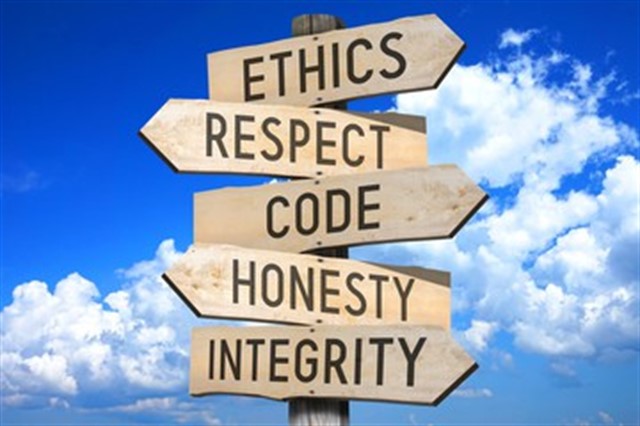 Public relations and corporate communications experts are urging corporations to more strongly embrace strict ethical standards.
Public relations and corporate communications experts are urging corporations to more strongly embrace strict ethical standards.
Ethical mishaps can cause corporations to lose customers, business partners, income and stock value, according to the study the Consequences of Managerial Indiscretions: Sex, Lies, and Firm Value published in the Journal of Financial Economics. Ethical indiscretions are also associated with an increased probability of shareholder-initiated lawsuits, high employee turnover, and government investigations.
Organizations can avoid such problems with adherence to high ethical standards. How the organization and its leading executives respond to revelations of ethical stumbles says much about the role that PR and ethics play in decision-making.
“As representatives of your brand, large or small, leaders and employees should behave as if they are on view at all times,” states Cheryl Conner, founder of SnappConner PR, in Forbes. “Beyond this, however, brands are challenged to market in new and better ways in the millennial-driven culture of business that demands your business “do it my way,” “do it the right way,” and proactively take action to address the social ills of the day.”
“We need a roadmap for ethical persuasion,” Conner said.
How to Embrace Ethical Behavior in PR
Be honest. Trust is essential for your company’s reputation and growth. Honest business practices inspire your key publics to treat your company and mission with respect. Honest PR practices build foundations of trust with all key stakeholders, writes Yulia Dianova, a PR pro at Axia Public Relations.
Respect confidentiality. Protect the confidentiality of your present and former clients and employees. Never disclose any confidential information unless you receive specific permission or in cases where the law requires it.
Be trustworthy. Earn the trust of your executives, journalists and the public by being honorable, upright and fair in all communications and decisions. Provide straightforward responses and advice. Steer clear of manipulative behavior.
Connect with stakeholders. Be aware of the concerns of customers and the full range of stakeholders. Align actions with those concerns. Acknowledge people, and reward their great acts. Celebrate and publicize the good news stories of employees and customers.
Show Gratitude. Show genuine gratitude for your customers and for the work and sacrifices of your employees. “The crux of your PR should focus on the trusted partnerships, innovations and collaborative progress you achieve with the help of your customers, partners and teams,” Connor says.
Display Empathy. Find out what’s behind anger statements. Perhaps people simply feel unheard. Their question and your response may help others. A golden rule for PR: Before deflecting or responding to a barbed remark, consider that the noble motive that may lie behind it.
Participate in decisions. An open line of communications between top management and its PR counselor helps the company respond to PR emergencies that often erupt during off-hours, write Philip Poole, former executive director of university communication for Samford University, and Stacy A. Smith, independent PR practitioner and 2018 ethics chair for the PRSA Alabama in the Birmingham Business Journal. If an organization includes its attorney in a decision, it probably should also include its PR adviser.
Hire staff with a moral compass. Ask questions involving ethics during the interview process to help determine the individual’s ethical standards. Present difficult ethical case problems and ask the candidate to explain how they would address each situation. Hire only those who show a commitment and inclination to “do the right thing.”
Stick to the PRSA Code of Ethics. Nine PR associations in the United States all agree on a single PR Code of Ethics. The code covers loyalty and safeguarding confidences, but also honesty, fairness, and free flow of information. All PR staff should know it well and conscientiously follow it. Business leaders should at least review it to better understand basic tenets of business and PR ethics.
Earn and maintain Accreditation in Public Relations (APR). Thirteen percent of the exam tests on applied ethics and legal issues. Accreditation demonstrates understanding of and commitment to business ethics. Organizations can support their PR employees’ continuing education offered by professional PR associations.
Bottom Line: With corporations under intense scrutiny, PR crises have become common. Communications professionals can decrease the chances of a crisis by following high ethical standards and urging their organization to embrace strict business ethics across the board.
William J. Comcowich founded and served as CEO of CyberAlert LLC, the predecessor of Glean.info. He is currently serving as Interim CEO and member of the Board of Directors. Glean.info provides customized media monitoring, media measurement and analytics solutions across all types of traditional and social media.




